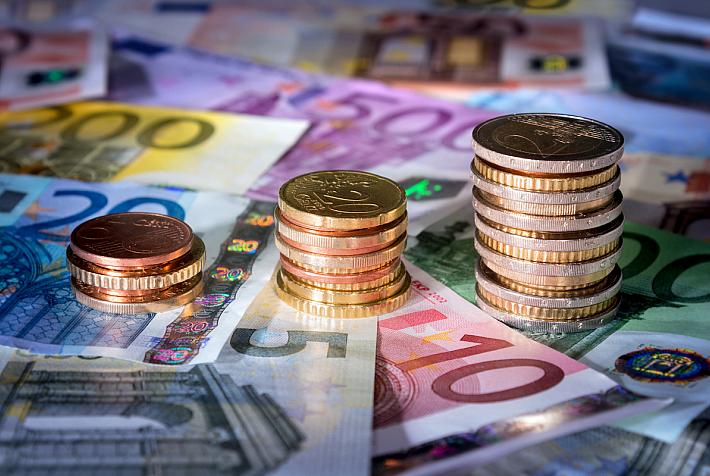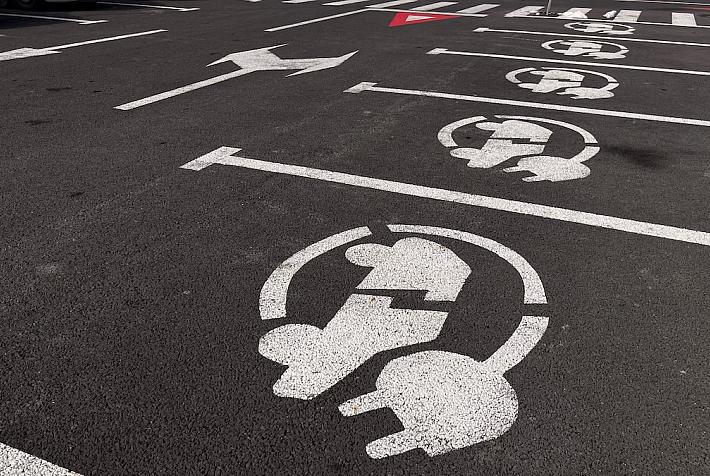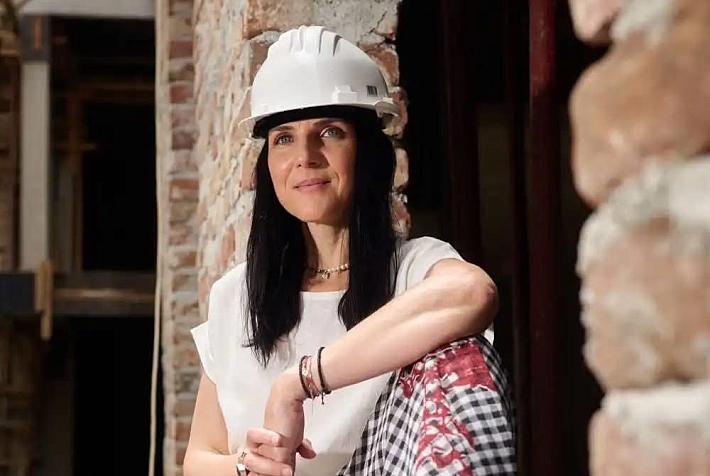European Broadcasting Union accuses Romania and five other countries of vote rigging in Eurovision semifinal
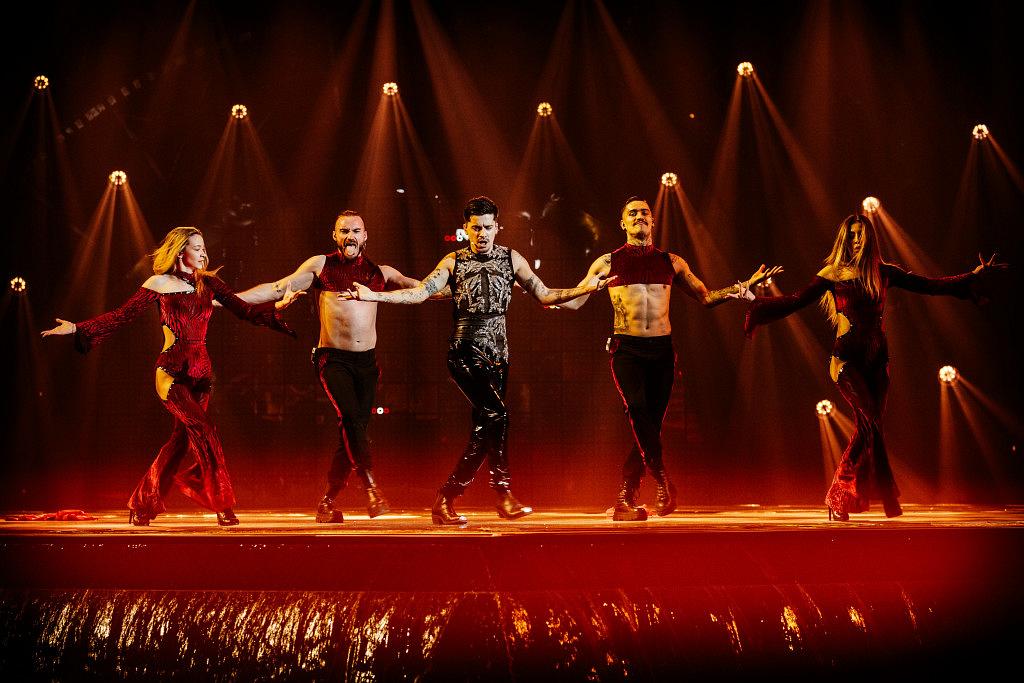
The European Broadcasting Union (EBU) defended its decision to replace the jury votes from six countries, including Romania, during the Eurovision Grand Final in a recent press release, arguing that it had detected vote rigging, whereby each of the six awarded the other five top scores in the second semifinal. The EBU's reaction comes after Romania and other countries demanded explanations after the Eurovision final on their jury votes being substituted.
On May 14, immediately after the final, the EBU’s vote watchers publicly announced that they were looking into “irregular voting patterns” among the jury votes during the second semi-final, which had taken place two days prior. They also stated that they had replaced the votes of the juries under suspicion. The juries in question came from six countries taking part in the second semi-final: Azerbaijan, Georgia, Montenegro, Poland, Romania, and San Marino.
Juries from these countries each placed the representatives of the others in their top, awarding four of the six at least one set of 12 points, the maximum. Outside of the six, juries from the other 15 countries participating in the second semifinal ranked the representatives of the former much lower.
“Five of these six countries were ranked outside the Top 7” and “four of the six countries were ranked in the Bottom 6 of the other 15 countries voting in this Semi-Final,” according to the EBU press release. EBU concluded that the group of six sought to benefit from gaining additional points from each other.
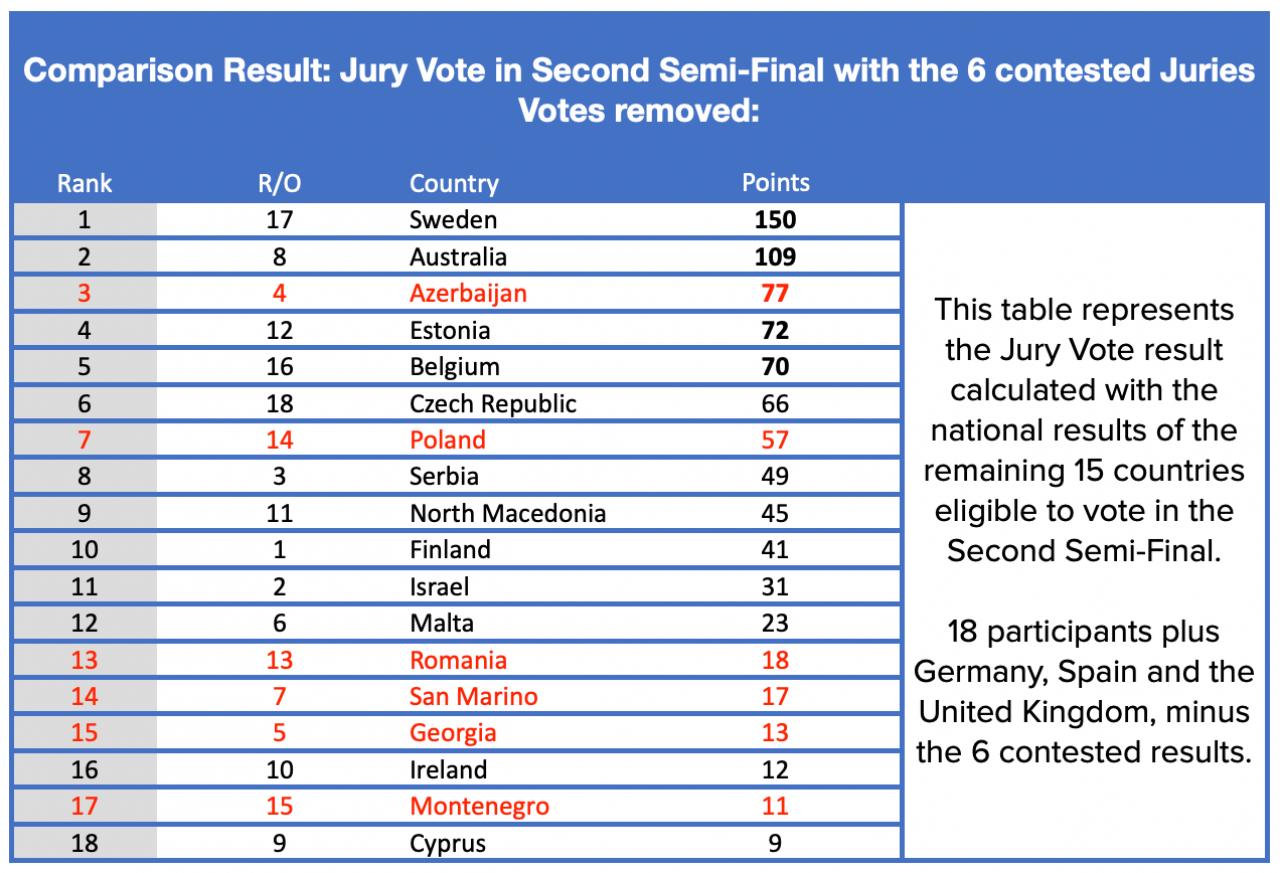
According to the rules of Eurovision, the Executive Supervisor has the right to remove jury votes which are identified as suspicious and to replace them with a substitute aggregated score.
As a result, during the Grand Final, the votes coming from the juries of the six countries were removed from the ranking allocation and replaced with an automatically calculated aggregate. In the live broadcast, the organizers invoked connection difficulties and skipped live presentation of votes from Bucharest, Warsaw and the other four countries, which raised some questions, given that such extensive problems hadn’t been signalled in the past. The same had happened, less visibly, during the second semifinal.
Romania is part of the six countries accused of attempting to rig the votes in the second semifinal. The Romanian jury intended to award top scores to San Marino (12), Poland (10), Montenegro (8), Azerbaijan (7), and Georgia (6). After the switch, Romania’s jury votes went to Sweden (12), Australia (10), the Czech Republic (8), Estonia (7), and Belgium (6). Ironically, the Romanian jury had ranked Sweden and the Czech Republic last in the second semifinal.
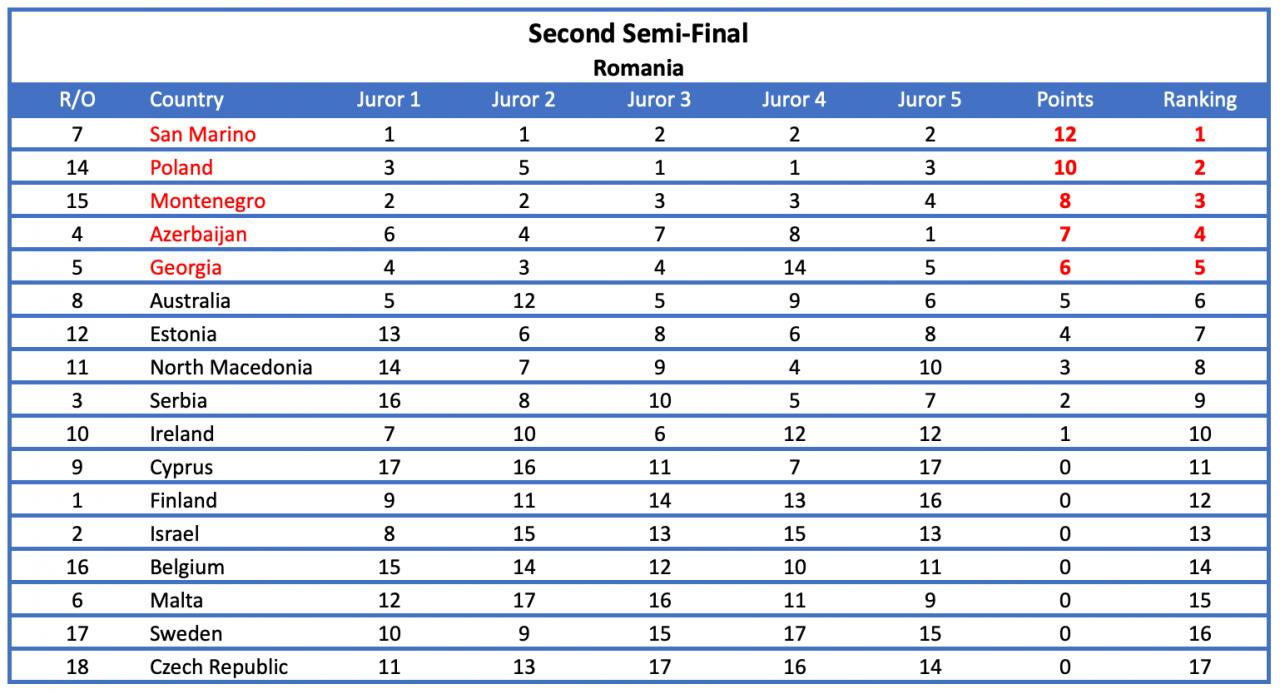
The members of the Romanian jury were Sanda Ladoși, Luminița Anghel, Ovi Jacobsen, Liviu Elekeș și Mihai Pocorschi. Anghel and Jacobsen previously represented Romania in Eurovision, in 2005 and 2010 respectively. Both times, Romania obtained 3rd place in the Grand Final, representing the country’s highest Eurovision placement in history.
During the second semifinal, Romania came in 14 in terms of jury votes, scoring only 18 points, after the suspected votes from the six countries in question were eliminated. This would’ve placed WRS, the country’s representative, outside of the top 10 that moved on to the final. The audience, however, placed Romania in 5th, bringing it to 9th overall, and allowing it to progress to the Grand Final, where it obtained a modest 18th place.
San Marino, Montenegro, and Georgia did not qualify for the final.
During the same press release, the EBU confirmed the final ranking of the 40 participants.
This year’s edition of the long-running Eurovision Song Contest was held in Turin, between 10 and 14 May. Ukraine’s representatives, Kalush Orchestra, won with their song “Stefania,” after receiving a massive number of votes (439) from the audience. Moldova’s Zdob și Zdub & Advahov Brothers came in second in the public vote (239) and ranked seventh in the combined ranking.
radu@romania-insider.com
(Photo source: EBU / Nathan Reinds)










